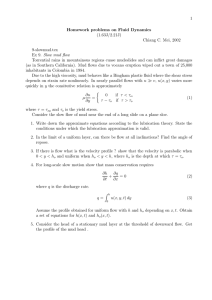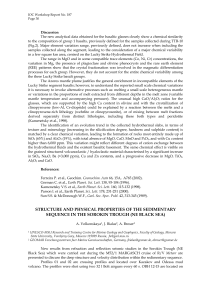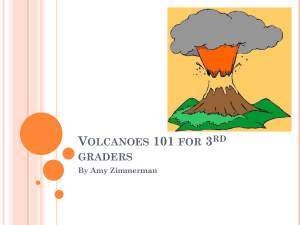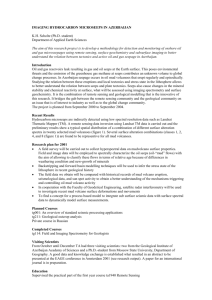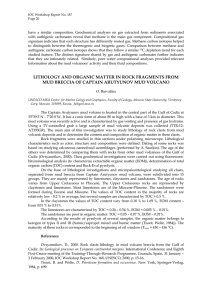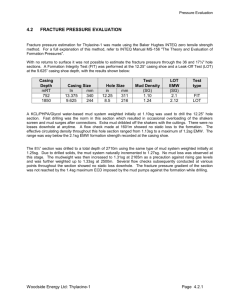Mud Volcanoes - WordPress.com
advertisement
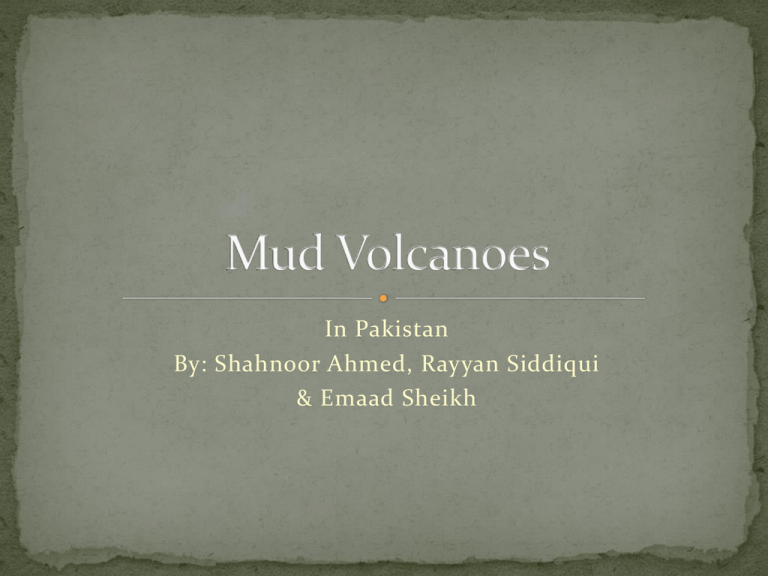
In Pakistan By: Shahnoor Ahmed, Rayyan Siddiqui & Emaad Sheikh Mud volcanoes are formed as a result of the increase in tectonic activity or a build up of pressure under the surface of the Earth. At first, they form little bulges and later on, become cones. The mud volcano is a conical structure; its sides are rather steep. Their temperatures can go as low as freezing point of certain materials. Approximately 1,100 mud volcanoes have been identified on land and in shallow water. Mud volcanoes erupt in a rather peculiar way. Instead of releasing lava, they release gases, like hydrocarbon, and sometimes spew tonnes of mud metres into the air. Balochistan is famous for its abundance of mud volcanoes; the most famous being the Chandragupta mud volcano. The Owais Mughal volcano is also pretty famous. In addition to being makers of oil and gas deposits, mud volcanoes are used as source of hot water, natural gas, and clay. The mud contains special qualities and people bathe in it.
